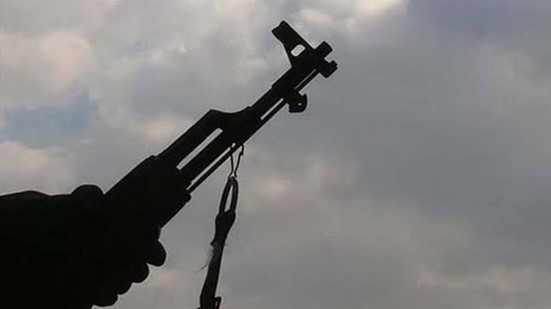Criminal Gang In South Africa Models Self After Boko Haram
A criminal gang in South Africa has named itself Boko Haram, raising concerns about public safety, as it goes out collecting levies from business owners.

A South African criminal gang has modelled itself after Boko Haram, a terrorist group terrorising some parts of the Sahel region—Lake Chad, Cameroon and Nigeria.
In Mamelodi, east of Pretoria, a former member of the criminal gang said the group had adopted the appellation of Boko Haram to strike fear in people’s hearts, according to South Africa’s online newspaper, Sowetan Live.
The former member said the gang had been threatening foreigner tuckshop owners with guns to extort money from them since 2018.
They moved on to collecting money from business people who benefit from tenders in the township, mainly in construction.
“The money we collected, we didn’t take it to the bank, instead we would put it in a safe and share among ourselves,” the unnamed man told Sowetan Live.
Three foreign shop owners who spoke to Sowetan Live showed handwritten receipts they had received from the group dating back to September 2018 showing that they paid sums ranging between R300 and R400, approximately N7,400 and N9,800.
The money collected has been termed “protection fee,” resembling the Boko Haram and Islamic State West Africa Province (ISWAP) trends of tax collection from farmers and people living in their controlled territories in Northern Nigeria.
“When a shop owner didn’t want to pay, we would take out our guns, point [them] at him and he would pay,” the man said.
Many of the guns they carried were unlicensed and were bought on the streets, the man said.
Another member told the newspaper that the gang had first registered as “Community First Forum,” a Non-Governmental Organisation (NGO) aimed at assisting struggling families, especially during funerals.
He claimed they started collecting R300 from spaza owners to contribute towards the funds they used to help vulnerable families but they had been misunderstood as rogues because some individuals impersonated them to terrorise people.
“Ever since we started collecting money, imposters stepped forward and pretended to be us… the money we collect is for the community,” the man further explained on the show.
He said the gang was split into two, two years ago leading to the creation of a separate group in Mamelodi East which also used the same name.
According to him, they chose the name Boko Haram on the streets to make the community respect and take them seriously.
In Nigeria, Boko Haram was founded in 2002 by Muhammed Yusuf in the Northeastern region to uproot corruption in the country which they blamed on Western education, and to impose Sharīʿah, or Islamic law, according to Britannica.
Later in 2009, the group became violent, vowing to avenge the deaths of Yusuf and other group members who were allegedly killed by the security operatives.
In 2015, the group pledged allegiance to the Islamic State in Iraq and the Levant (ISIL) and was split into two factions in 2016, with the new faction changing the name to Islamic State of West African Province (ISWAP).
Their terror campaigns have resulted in carnage and mayhem that has left more than two million displaced and hundreds of thousands dead.
As the threat spreads to other countries, fears are growing that the Nigerian government may not know how to counter it.
Support Our Journalism
There are millions of ordinary people affected by conflict in Africa whose stories are missing in the mainstream media. HumAngle is determined to tell those challenging and under-reported stories, hoping that the people impacted by these conflicts will find the safety and security they deserve.
To ensure that we continue to provide public service coverage, we have a small favour to ask you. We want you to be part of our journalistic endeavour by contributing a token to us.
Your donation will further promote a robust, free, and independent media.
Donate HereStay Closer To The Stories That Matter




